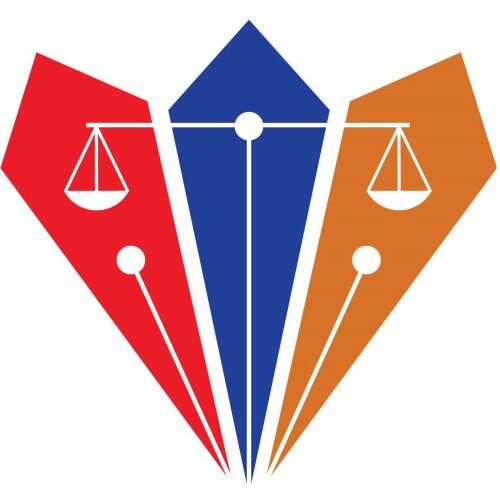Best Real Estate Lawyers in Tanzania
Share your needs with us, get contacted by law firms.
Free. Takes 2 min.
Free Guide to Hiring a Real Estate Lawyer
Or refine your search by selecting a city:
List of the best lawyers in Tanzania
About Real Estate Law in Tanzania
Real Estate law in Tanzania encompasses the legal framework governing land use, property ownership, and real estate transactions in the country. It is important to have a good understanding of the laws and regulations governing real estate in Tanzania to navigate the real estate market effectively.
Why You May Need a Lawyer
There are various situations where you may require the services of a lawyer specializing in real estate law in Tanzania. This may include property transactions, land disputes, lease agreements, property development, and compliance with local regulations. A lawyer can provide valuable advice and guidance to protect your interests and ensure a smooth real estate transaction process.
Local Laws Overview
Key aspects of real estate law in Tanzania include the Land Act, Village Land Act, and the Land Registration Act. These laws govern land ownership, registration of title deeds, land acquisition, and land use planning. It is important to understand these laws to avoid legal complications and disputes when dealing with real estate in Tanzania.
Frequently Asked Questions
1. How does the land ownership system work in Tanzania?
In Tanzania, land is categorized into three main tenure systems - General land, Village land, and Reserved land. Each tenure system has specific regulations governing land ownership and use.
2. Do foreigners have the right to own land in Tanzania?
Foreigners are restricted from owning land in Tanzania, except for leasehold rights for investment purposes. It is important to consult with a lawyer to understand the legal requirements for land ownership as a foreigner.
3. What are the steps involved in property registration in Tanzania?
Property registration in Tanzania involves obtaining a title deed and registering it with the relevant authorities. This process includes verification of land ownership, surveying, and registration of the title deed.
4. How can I resolve a land dispute in Tanzania?
Land disputes in Tanzania can be resolved through negotiation, mediation, or legal proceedings. It is advisable to seek the assistance of a lawyer experienced in real estate law to resolve land disputes effectively.
5. What are the legal requirements for property development in Tanzania?
Property development in Tanzania requires compliance with zoning regulations, building codes, and environmental laws. It is essential to seek legal advice to ensure compliance with all legal requirements for property development.
6. Can I lease property in Tanzania as a foreigner?
Foreigners can lease property in Tanzania for a specified period, subject to compliance with the legal requirements for property leasing. Consult with a lawyer specializing in real estate law to understand the lease agreement terms and legal implications.
7. How can I verify the authenticity of a title deed in Tanzania?
To verify the authenticity of a title deed in Tanzania, you can conduct a search at the relevant land registry office or consult with a lawyer specializing in real estate law. It is essential to ensure the validity of the title deed before engaging in any property transaction.
8. What are the key considerations when buying property in Tanzania?
When buying property in Tanzania, it is important to conduct due diligence, verify the legal status of the property, and ensure compliance with all legal requirements. Consulting with a real estate lawyer can help you navigate the property buying process effectively.
9. Can I transfer property ownership in Tanzania?
Property ownership in Tanzania can be transferred through a legal process involving the transfer of title deeds and registration of the new owner. It is advisable to seek legal advice to ensure a smooth transfer of property ownership.
10. What are the consequences of not complying with real estate laws in Tanzania?
Non-compliance with real estate laws in Tanzania can result in legal disputes, fines, penalties, and even forfeiture of property rights. It is crucial to abide by the legal requirements governing real estate transactions to avoid legal complications and financial losses.
Additional Resources
For additional resources on real estate law in Tanzania, you can consult the Tanzania Ministry of Lands, Housing, and Human Settlements Development, Tanzania Law Society, and the Tanzania Real Estate Association for guidance and information on real estate legal matters.
Next Steps
If you require legal assistance in real estate matters in Tanzania, it is advisable to consult with a qualified real estate lawyer who can provide expert advice and representation. Contact reputable law firms specializing in real estate law to discuss your legal needs and ensure a smooth real estate transaction process.
Lawzana helps you find the best lawyers and law firms in Tanzania through a curated and pre-screened list of qualified legal professionals. Our platform offers rankings and detailed profiles of attorneys and law firms, allowing you to compare based on practice areas, including Real Estate, experience, and client feedback.
Each profile includes a description of the firm's areas of practice, client reviews, team members and partners, year of establishment, spoken languages, office locations, contact information, social media presence, and any published articles or resources. Most firms on our platform speak English and are experienced in both local and international legal matters.
Get a quote from top-rated law firms in Tanzania — quickly, securely, and without unnecessary hassle.
Disclaimer:
The information provided on this page is for general informational purposes only and does not constitute legal advice. While we strive to ensure the accuracy and relevance of the content, legal information may change over time, and interpretations of the law can vary. You should always consult with a qualified legal professional for advice specific to your situation.
We disclaim all liability for actions taken or not taken based on the content of this page. If you believe any information is incorrect or outdated, please contact us, and we will review and update it where appropriate.
Browse real estate law firms by service in Tanzania
Tanzania Attorneys in related practice areas.
Browse real estate law firms by city in Tanzania
Refine your search by selecting a city.













